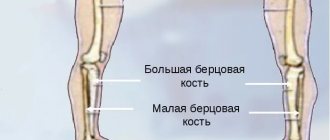Currently, acceleration and progress, many people live in a state of constant stress, without even noticing it. As a result, outbreaks of diseases, worsening psychosomatics and, of course, nervous disorders. More than a third of the entire population suffers from panic attacks, phobias, and fears. It’s not for nothing that the saying “all illnesses come from nerves” appeared. There is a lot of truth in it. How to cope with oppressive stress and put your nerves in order will be discussed in the article.
Ways to calm the nervous system
Each person seeks and finds his own personal ways to calm his nerves. Some people are addicted to alcohol, others play sports. You can find the most optimal remedies without resorting to alcohol and pills.
Psychologists give some useful recommendations in this regard:
- Disconnect from problems for a while, do what you love, for example, reading, listening to your favorite music, watching interesting films.
- Walking in the lap of nature helps you calm down and bring yourself back to normal. Contemplation of picturesque landscapes helps you relax and charges you with positive energy.
- Eat plenty of fruits and vegetables, they are full of vitamins and minerals that help cope with stress.
- It is important to get enough sleep, because during sleep the nervous system is restored. You need to go to bed at the same time to make it easier to fall asleep. Before going to bed, it’s good to take a walk in the fresh air and ventilate the room.
- It helps to forget your problems and cheer up by watching comedies and funny videos.
Body strengthening
To restore your body and mind, you need to follow simple tips:
- Physical activity has a positive effect on the body. Constant movement, sports and other physical activity have a positive effect on the condition of the body, and, consequently, the nervous system improves;
- control your diet. The body must receive the required amount of vitamins, minerals and other beneficial substances found in food products every day;
- rejection of bad habits. Despite the fact that many are accustomed to starting the morning with coffee and a cigarette, this habit should be forgotten. It’s better to completely give up all bad habits, such as alcohol, cigarettes, stimulants. The excitement that occurs due to receiving a dose of nicotine is quickly replaced by an inhibitory reaction;
- sauna and bathhouse. Such methods help cleanse the body and soul. Elevated temperatures and hot steam together help cope with many diseases, the body and nerves relax;
- harden. Water has a positive effect on the nervous system. If you harden yourself, you can strengthen your immune system. It invigorates and strengthens the body. There is a more extreme way to harden yourself - winter swimming. It may seem strange, but the health and calmness of walruses can only be envied. If you go down into an ice hole, your body will be very grateful;
- drink as much water as possible. Many people know the 8 glasses method. This is how much water a person should drink per day. This cleanses the body well, removing toxic substances;
- massage. A great way to get rid of many ailments and relieve stress. The body gradually loses its flexibility, the joints become less mobile. A good massage will speed up blood circulation and trigger metabolic processes.
Ways to quickly relieve tension
It often happens that stress overtakes you by surprise. Then your health worsens, but you must continue to work and move at the same rhythm. We’ll talk about how to calm down and put your nervous system in order within a few minutes.
Here are some tips from psychologists on how to quickly calm down:
- Self-massage of your fingers helps relieve stress. This can be done on the eve of a public speech, an important meeting, or an exam. This method is simple: you need to press hard on the pads of your fingers one by one. This activates the brain and helps take your mind off stress.
- Deep breathing is a great way to quickly calm down, but it must be done skillfully. With proper calming breathing, only the stomach moves, the chest remains motionless. Five minutes is enough, while inhaling, the stomach moves forward, then a second pause. Then a long exhalation, then a short pause again.
- Aromatherapy helps to calm down. A few drops of lavender oil are added to the lamp and inhaled slowly. It's better to close your eyes.
- You can call a friend or loved one. This will help you calm down.
- Some people find reading to relieve stress, especially if the text makes them smile, such as funny stories. It is useful to write them out in advance and carry them with you.
If your anxiety level has increased, drawing and writing poetry can help. It is impossible to be nervous and creative at the same time.
Proper diet
Nutritionists have developed a special diet for those who want to stop being nervous and start enjoying life. If the body lacks potassium, calcium, magnesium, phosphorus and iron, then the nervous system and the entire body will suffer. It is especially important to ensure that the body receives the required amount of magnesium.
- You need to eat buckwheat, oat and wheat porridge more often.
- Phosphorus relieves muscle tension and stabilizes the functioning of the nervous system. The trace element is present in milk, cereals and beans.
- Calcium – regulates the functioning of muscles and nerves. Contained in milk, nuts and cabbage.
- Iron – contributes to the normal functioning of the thyroid gland, ensures normal metabolic processes. Present in seafood, river fish, fruits, green vegetables, baked goods.
- Potassium – normalizes the smooth functioning of nerves and muscles, prevents stress and nervous breakdowns. The lack of microelements can be compensated for by vegetables, fruits, lean meat and fish, and dried fruits.
How to calm down at home
If stress catches you at home, the best thing to do is take a bath or shower. Immediately after stress, you need to do a little gymnastics. Physical exercise helps quickly get rid of adrenaline, which enters the bloodstream during stress. You can sit down several times quickly or walk from room to room at a fast pace. Then breathe slowly for a few seconds. Then lie back in your chair or sofa, close your eyes and breathe deeply and slowly.
Sometimes the mundane environment in the house is annoying. You just need to change the curtains, put up new wallpaper, rearrange the furniture, hang pictures with beautiful landscapes. And the mood will immediately change.
What are the causes of stress?
There are many causes of stress. Each person has an individual body and psyche. The same factor may not affect one of us at all, but cause a violent reaction in another. The most common factors in the development of stress:
- conflict situations at work or at home;
- discontent;
- lack of money;
- long absence of a full vacation;
- routine life with no change;
- death of a relative or loved one;
- lack of vitamins, poor nutrition;
- problems in sexual life;
- fears;
- loneliness;
- sudden change in environment;
- other reasons that can hook a person.
Calming tips for the stronger sex
Men are also sometimes vulnerable to stress and unpleasant emotions. There is an opinion that representatives of the stronger sex should not allow feelings to show or cry. But if you “carry everything inside you,” the body can react psychosomatically. Stomach ulcers, hypertension, etc. will appear. And often men “drown” troubles with alcohol. This is no less harmful to the body.
It is very important to get rid of unpleasant emotions in a timely manner. How can a man do this? There are several psychological techniques for relieving stress for the stronger sex. One of them is wall pushing. You need to put your hands on the wall and push with force. Then relax for a few seconds. Then repeat the same thing. This exercise promotes the production of endorphins.
You can beat a pillow, scream in an empty room. But don't take it out on children or animals. Fishing and hunting, walks in the forest help some men. Others go to meet friends. Dancing helps relieve stress.
Symptoms of stress
Each person reacts to stress differently. What all reactions have in common is a negative impact on the psyche and physical state. The person becomes aggressive and his mood worsens. It happens that stress also causes other reactions - silence, detachment, passivity and isolation. It all depends on the type of temperament.
Typical signs of stress are:
- inability to concentrate on any one type of activity;
- causeless attacks of irritability, anger, dissatisfaction with others;
- lethargy and weakness, depression;
- insomnia, nightmares;
- inability to completely relax and unwind;
- panic attacks, constant feeling of fear;
- desire to cry, melancholy;
- lack of trust in yourself and the people around you;
- lack of appetite or, conversely, the desire to eat a lot;
- sudden appearance of bright and strong emotions (for example, laughter, which quickly gives way to tears and vice versa);
- increased sweating, excitability, itchy skin and headache;
- dizziness, rapid breathing;
- numbness of the limbs;
- nervous tics, desire to bite nails or lips;
- interest in alcohol or drugs;
- chronic fatigue that does not disappear even after a night's rest.
Stress. Twenty-one reasons and what to do with them
Preface by Lakhta Clinic. In the twentieth century, several theories appeared that can rightfully be called popular science. Not in the sense that they are primitive, understandable to everyone, liked by everyone and discussed competently by everyone. Alas, the opposite is true: only a few narrow specialists working in the relevant fields truly understand the essence of the problems, the formulation of the questions and the proposed methods for solving them, and only a handful of people on the globe are able, “standing on the shoulders of the titans,” to develop revolutionary ideas and theories to move forward. The rest of humanity gets along just fine without even an approximate understanding. This is not a reproach at all; This has always been the case and, apparently, it will be so in the coming centuries. Another thing is more interesting: some terms and expressions, borrowed from a variety of sciences, for some reason seem intuitive and universally explanatory, as a result of which they become so well-known, popular, and commonly used throughout the world that they begin to live their own lives at the level of everyday language and collective consciousness. At the same time, the scope and content of terms, as a rule, expand to infinity, going far beyond the initial clear framework and extending to any everyday situations. “Action is equal to reaction”, “everything in the world is relative”, “conditioned reflex and Pavlov’s dog”, “Schrödinger’s cat” (thanks to its difficult fate, this animal became the hero of jokes and memes on the Internet), “black hole”, or, say, “subconscious” (by the way, did you know that not a single truly competent psychologist with a university education uses the vulgarized term “subconscious”, preferring to study the “unconscious”?). The names of Wilhelm Roentgen, Albert Einstein, Ivan Pavlov, the same Erwin Schrödinger - and all these are Nobel laureates - are constantly heard, they are known, in general, to everyone. It's not about the awards, however. For various reasons, Isaac Newton, Sigmund Freud, Stephen Hawking and many, many others, whose influence on the culture of the Earth is enormous and undeniable, did not become laureates. These include Hans Selye, whose research is responsible for the worldwide popularity of another meta-concept, which, in terms of frequency of use, probably occupies one of the leading, if not the first, positions among similar “everyone understands” words. This refers to the concept of “stress”.
As if Providence itself had prepared universality and cross-culturalism for Hans Selye: by birth Janos Scheie, he was the son of a Hungarian and an Austrian, born in Austria-Hungary (1907), studied in Czechoslovakia, Italy, the USA, and then lived until his death (1982). and worked in Canada. He did not receive the Nobel Prize, although he was nominated at one time: apparently, bad proceedings regarding the sources of funding for the main direction of his research had an impact. But all this no longer matters: the main thing is that the whole world today complains about “stress” - although Selye himself, God knows, is not at all to blame for our stress. In general, he meant something slightly different compared to the meaning that most of us give to this word. Actually, it was not Selye who came up with this term, but the American psychologist of the classical school Walter Cannon, just as the notorious “subconscious” was proposed not by Freud, but by Pierre Janet.
The original meaning of the English word “stress”, be it a noun or a verb, is semantically related to pressure, load, imprinting, shaking, impact (if you remember, on the first PCs running MS-DOS, “Strike...”, or “Press...” were often offered. , or “Hit...”, or “ Stress any key”). In the late, final version of Selye’s concept, stress is understood as any external influence that threatens to remove the body from equilibrium homeostasis (constancy of internal conditions). In another meaning, stress is “a set of nonspecific adaptive reactions.” Non-specific, i.e. the impacts can be different (infection, injury, unpleasant situation, etc.), and in response to them the same, for example, the temperature rises, the heartbeat and breathing become more frequent. It is important that Selye was not a psychiatrist or psychologist; his medical specialty was endocrinology, and thus stress is not a household concept, but a neuroendocrine and psychophysiological one. In the early stages of his research, Hans Selye did not use this term at all; he dealt with the so-called. general adaptation syndrome, developing and arguing this concept in detail. In particular, Selye’s ideas about the three phases or stages of the adaptation reaction are widely known: mobilization-resistance-exhaustion. According to Selye, stress for the body is not just normal, it is the most important evolutionary mechanism of “fine tuning to a specific situation,” allowing us to survive without any special consequences where a less flexible, nimble, resourceful, quick-reacting biological machine would simply die. And not immediately did Selye begin in his works to differentiate physiological, normal stress, leading to the accumulation of useful experience and additional “training” of the body, from pathological stress, which leaves certain negative consequences, dysfunctions, maladaptive disorders (“diseases of adaptation,” as he called their author). Selye called “good” stress eustress, and “bad” stress – distress. Ideas about distress closely resonate with another important medical theory of the twentieth century - the concept of psychosomatic diseases (see, for example, “Bronchial asthma”, “Gastroduodenitis. Peptic ulcer of the stomach and duodenum”, “Neurosis”). What we will talk about next is, of course, not stress in general, but specifically distress, and almost exclusively distress of the information type.
And what do we understand by stress - we, who are “well-almost-already doctors”, “who have read a lot on medicine” or “also some kind of specialists” - when we use this red word where it is necessary and where it is not necessary? Whatever. It seems that any doctor who sees patients will now smile and nod his head with great knowledge of the matter: if a person complains about the stress he has experienced (especially in the formulation “I had nervous stress, doctor... well, you understand...”), this phrase may hiding psychosis, and neurosis, and depression, and a dented bumper, and a panic attack, and an acute reaction to stress, and a surgical operation, and a family scandal, and a lack of money, and claims to the government, and our mediocre lost semi-final... in a word, anything. Everything that we don’t like or makes us nervous, distracts, disturbs, excites, angers, frightens, suddenly makes us happy. Everything that seems stressful to us. Anything that is even remotely similar to this word or consonant with it. Soon it will be possible to consider him originally Russian.
This is the property of universal meta-concepts.
The material published below is translated. For the editors of the Lakhta Clinic website, it is always interesting and useful to turn to the experience of foreign colleagues - and how they supposedly cope with one of the main common problems, as they explain in simple words to their readers (ranging from a housewife and a schoolchild to an academician inclusive) very, very difficult things. It is obvious that any medical information resource must master this art perfectly. The healthy lifestyle portal with the simple name Health is extremely popular and is visited by a huge English-speaking audience. Let's see what exactly this audience reads about stress and its main causes. Both in the modern world are hardly very different in different countries and on different continents. Over to Amanda McMillan and Corinne Miller.
And lastly, so as not to be distracted later: the vocabulary and style, if possible, are preserved by the author, and the notes and clarifications where they were needed are ours.
What is stress, exactly?
As long as you remain a living, breathing human being, you will face stress at certain points in your life. This is your body's response to challenges or demands placed on it, as defined by MedLinePlus (website of the US National Library of Medicine).
These are completely normal sensations, and in some cases they can be of benefit to you (for example, they help you avoid dangerous situations). But if they drag on for a long time, they can put you at risk for quite serious health problems, such as depression or anxiety, or even become a source of, for example, chronic skin problems.
You may be very aware of what your specific stress triggers are—working against a deadline or fighting with your spouse—but these factors can also creep into your life in other, sometimes unexpected, ways. Twenty-one of the most common factors that can cause unwanted stress are discussed here.
Significant other
Even if you are simply blissfully living together and in a relationship with your partner or spouse, you are both doomed to sometimes do something that gets on the other’s nerves. “Early in a relationship, there tend to be issues with space and habits, such as whether you squeeze the toothpaste from the middle or the bottom of the tube,” says Ken Yeager, Ph.D., assistant professor of psychiatry at The Ohio State University Wexner Medical Center. . “Later, you may have conflicts about raising children or financial problems, and you will need to learn to present a united front to solve these problems together.”
So what is the key to a long and happy life together? In finding balance, K. Yeager answers: in spending the right periods of time together (not too short and not too long); in the ability to compromise, remain honest and open with each other, and remember and acknowledge daily why you love each other.
Everyday irritants
We're constantly told to "not sweat the small stuff" and "not to sweat the small stuff," but it's often the little things that have the greatest negative impact on our mood: endless phone calls with the insurance company, the rude cashier at the grocery store, the unsuccessful 20-minute search for an empty seat. for parking.
“We allow these things to irritate us because they trigger unconscious fears,” notes Ken Yeager, “of being seen as irresponsible, of being bullied or ridiculed, or, say, of being late for something. Sometimes you just need to take a step back and really appreciate the fact that you are now doing the best you can do under the circumstances.”
Other people's stress
In 2014, a study was carried out in Germany, the results of which indicate that stress is contagious and contagious. In a series of experiments, the majority of those participants who simply watched other people perform stressful tasks also found increased secretion of cortisol, the “stress hormone.” This phenomenon is known as empathic stress. You may also become stressed if someone you know is the victim of a traumatic situation, such as a car accident or serious illness. As Dr. Yeager says, “...you start to worry: oh my God, this could happen to me! Usually we try not to think about such things, and we don’t even think about it until trouble happens somewhere near our home.”
Social media
It may seem like social networks like Facebook or Instagram are the only way to maintain friendships with people you don't see regularly - and during particularly busy periods, you see almost none of your friends. But the same social networks, according to numerous studies by the Pew Research Center, can also have the opposite effect: thanks to them, you instantly learn about all the stressful situations and events happening in the lives of your friends, and thereby add stress to your own life. Although the Pew Research Center failed to conclusively prove this as a general rule in 2015, earlier studies have shown that frequent use of social media can lead to, at the very least, negative body image and a significant prolongation of the period of “mental pain.” in case of relationship breakdowns.
Abstraction
Shifting your attention can be a great thing to do to help you take your mind off a stressful situation or a difficult decision—for example, taking a break from your busy work to meet a friend for lunch. However, this also works in the opposite direction, namely: you may find that you are intensely thinking about something stressful and this prevents you from fully enjoying what is happening around you “now and here”. This type of distraction can be called one of the recipes for stress.
“Various practices for increasing alertness, thoughtfulness, and focus ensure that your brain is refreshed and at peak productivity when needed,” says Richard Lenox, director Student Advisory Center at Texas Tech University. And he adds: “Being completely focused on your surroundings when you're walking or driving is a good idea. Stress and anxiety tend to dissolve when the focus is on the present.”
Your childhood
Traumatic events you experienced as a child may continue to increase your stress levels and negatively impact your health as an adult. In 2014, specialists from the University of Wisconsin-Madison conducted a study, the results of which showed that negative childhood experiences can actually change the functioning of those parts of the brain that are responsible for processing stress and emotions. The conditions in which you grew up can still influence your daily level of anxiety (one of the meanings of the English term “angst” is existential anxiety, which in this case is more accurate). Also in 2014, this was confirmed by researchers from Johns Hopkins University. It has been shown that those children whose parents suffer from social anxiety disorder have a higher risk of developing the so-called. downward, “trickle down” anxiety - not only due to genetic factors, but also due to the characteristics of parental behavior, in particular, a lack of emotions and warmth, or a high level of criticism, doubts, demands, etc.
Tea and chocolate
You probably know that you shouldn’t drink too much coffee if you feel “on edge.” Dr. Ken Yeager reminds us: “Caffeine always makes stress worse, that's what we know. But you may not realize that several cups of tea or a candy bar in a row contain almost as much caffeine as a cup of strong coffee. Chocolate, for example, is a powerful source of caffeine, and I personally know some people who don’t drink coffee at all but eat six chocolates and bars in two hours because they unconsciously crave an extra jolt.” In other words, caffeine abuse in any form can lead to irritability and emotional instability, sleep and digestion problems.
Your expectations
When things don't go a little differently than you planned, do you tend to get frustrated, discouraged, and defensive, or do you respond to fate by adapting as you go and developing a new plan?
If the first, then you drive your own thinking onto pessimistic tracks and develop the psychology of a “victim of circumstances,” which gradually weakens you, even if in reality the situation is not as bad as it might seem to you. “Your level of serenity and tranquility is inversely proportional to your expectations,” K. Yeager succinctly formulates. This doesn't mean, of course, that you shouldn't set ambitious goals for yourself or settle for less than you deserve, but being realistic in your expectations and assessments of opportunities is actually very important.
Your reaction to stress
If you tend to try to cope with stressful situations by working continuously for long hours, skipping regular exercise and/or eating large quantities of unhealthy food, then the bad news for you is that you are only making things worse for yourself. And again, let's turn to a specialist for explanations: “We all know that physical activity and a healthy diet help the body cope better with stress, and yet we often neglect this method when it is most needed,” says K. Yeager . “People should really think about this stress vortex that it’s so easy to get sucked into, and do something meaningful to counteract it.”
Multitasking
Think you're super efficient if you're trying to solve four problems at once? Rather, it's just the opposite: it only reduces your productivity, while at the same time increasing your stress levels. You can refer, for example, to a 2012 study at the University of Irvine (California). Among other things, the findings suggest that people who respond to emails all day while trying to work are more likely to experience heart rate variability (a strong indicator of mental stress) than those who put off correspondence and do not try to immediately respond to everyone who writes. Focusing on one task at a time can ensure that you do the job to the best of your ability and ability, and you won't have to worry about the outcome or go back and forth to fix it. And don't worry: you will always have enough time to get everything done. Actually, you yourself can easily see that you have much more time than you think.
Favorite sport
If you're a fan and your favorite team is playing hard, it can be stressful—even if your team is winning. “The body doesn't always differentiate between the 'bad' stress associated with life or a demanding job and the 'good' stress and excitement on the day of a big game,” says Jodi Gilchrist, a nurse practitioner at the University of Alabama Birmingham Cardiovascular Clinic. Binge-watching sports can even activate the sympathetic nervous system (see Adie Syndrome), releasing increased amounts of adrenaline and reducing blood flow to the heart. These temporary, transient effects are usually not a cause for concern, but over time, chronic stress can lead to persistent increases in blood pressure and generally increase the risk of serious illness. And of course, drinking alcohol and gluttony only aggravate the situation, which is already stressful for your body. “The outcome of the match is not up to you,” says J. Gilchrist, “but you can at least limit the adverse effects for your own sake.”
Digital devices
“Whether it's for work or play, technology can be very bad for your mental health,” says Ken Yeager. – Using computers or e-books immediately before bed can cause various dyssomnias, i.e. Sleep disorders, as well as a passion for virtual communication, can turn real human interactions into something stressful. On top of this, typing away at yourself incessantly does not activate the same “feel good hormones” that are released in a face-to-face conversation.
Finally, sooner or later, a catastrophic “work failure” will occur if employees are tied to their work via smartphones, even during breaks or on weekends. People say, for example, that they just need to stop by for a second and check their email, but in reality the messages you receive fill you with new responsibilities, new tasks and dilemmas, and all this remains in your head for hours, where it is difficult to isolate or block anything during the rest period.
Your (good) health
It may not be as stressful as having a chronic illness or hearing bad news at the doctor's office, but even people in great shape worry about their health, diet, fitness level, etc. In fact, people who take their commitment to a healthy lifestyle to the extreme are at risk of experiencing some unhealthy side effects. Thus, adherents of low-carbohydrate diets are more likely to report feeling sad or signs of stress, while adherents of any restrictive diets feel more tired than usual. And it is by no means unique for someone to become completely obsessed with healthy eating (orthorexia) or exercise (hymorexia). Like any other form of perfectionism, such extremes can be stressful to say the least and, in the worst cases, very dangerous.
Household
Does folding and folding laundry calm you down, or does it make your blood boil with anger?
If you are in a situation in life where you feel responsible for doing an unfair amount of housework, then even the tasks you once enjoyed may now feel like torture. Dividing household duties and parental responsibilities fairly can be difficult, especially if both parents work outside the home. And your attitude towards homework depends on whether you consider the current division to be equal or unequal.
Uncertainty
According to Ken Yeager, stress can be interpreted as any perceived or real threat, and any doubts that plague you can contribute to increased anxiety levels on a daily basis. “When you know that something can change at any moment, you are constantly on guard, and it is difficult for you to even just relax, let alone enjoy reality.” Financial uncertainty may be the most obvious example of such a stressor: not knowing whether you'll keep your job during the next downsizing, or not knowing how you'll pay all your mortgage bills. Lack of security in other areas of your life, such as close relationships or a place to live, can also literally eat away at you.
Pet
It doesn't matter how much you love your furry friends, but there's no doubt that their presence adds extra responsibility to a cup that's already nearly overflowing. Even a healthy animal must be fed and walked, cleaned up after it and given regular attention; if the pet is sick, then this is a completely different story. “Pets can be the most positive source of unconditional love, but they also require a lot of energy,” says Yeager. “In addition, people tend to underestimate the stress they face when they lose a pet. More than once or twice in my office people told me that they cried more about their dead dog than about their dead parents. It's a very intense emotional connection."
Your education
Having a higher education increases your chances of getting a well-paid job. So while there may be less risk of stress and anxiety that may be associated with your financial future, questions about your education may put you under a different type of stress. This is stated in a research report conducted in 2014 by the team of Professor Scott Schieman at the University of Toronto. It was found that highly educated people are more susceptible to stress, which is caused by pressure from functional duties and responsibilities, overload, and conflicts between work and family. “High levels of power and responsibility come with much heavier interpersonal burdens, such as the need to monitor other people's work or make decisions about their career advancement,” says S. Shiman. “People with such responsibilities begin to perceive certain things, such as someone’s incompetence or shirking of duties, as their own personal problem, which ultimately increases their stress levels dramatically.”
Noise
If you live on a busy street in a big city, you are chronically exposed to acoustic pollution.
Numerous studies have shown that even low levels of constant noise can cause sleep disturbances, which in turn is a stress trigger. Noise can also directly cause stress if you voluntarily or involuntarily fixate your attention on it (hello, who would enjoy a day spent listening to the sound of jackhammers?). “The most stressful thing is an unpredictable, high-pitched noise,” says Frank Ghinassi, Ph.D., president and CEO of the Center for Behavioral Therapy at Rutgers University. – In general, this is any noise that you can hear in an urban environment. It can interfere with concentration and thus require increased energy expenditure to overcome this frustration.”
Psychologist John Mayer, Ph.D., owner of the podcast “Anxiety's a B!tch,” adds: “Specifically, your amygdala, the brain structure that Normally regulates emotions. And if the noise is detected, the amygdala activates the release of cortisol.”
Get stressed. Should you wrap it?
Life during a pandemic
It's easy to give up and convince yourself that you're doing everything right during a global pandemic. However, J. Mayer believes that it is much more difficult not to fall victim to at least one of the factors of the COVID-19 crisis, be it irritation about the inability to carry out a normal lifestyle, anxiety about the place of work or the real fear of contracting the coronavirus. “First of all, a person’s defense mechanism of denial is triggered,” says Mayer. – And if it seems to you that the stressors are somewhere out there, far beyond the boundaries of your own life, this means that this psychological defense mechanism is already involved. You can continue to live in denial until you or someone close to you suffers the immediate consequences of the pandemic, but the stress remains with you all the time.”
“The problem here is that stress accumulates over time, leaving you feeling completely exhausted,” adds F. Ghinassi.
Nagging
On the one hand, if you whine and complain about fate, then you get rid of the painful thoughts that have accumulated inside, as if in a corked bottle. But on the other hand, you once again double-check and repeat everything that has already become a source of constant tension, and again you get upset.
Frank Ghinassi recommends reconsidering the manner of wording, while trying to make the reason for whining less scary. One example: call something “annoying” (meaning it's something you can live with) rather than calling it “horrible” (which sounds borderline catastrophic).
Alcohol
Of course, sometimes a glass of wine after a long hard day can help you relax. But sometimes this can also work against you. Alcohol can actually cause the stress hormone cortisol to be released, leaving you even more groggy when it comes to coming out of your relaxed state. According to John Mayer, if you drink too much, you'll later struggle with things like memory problems and difficulty verbalizing judgment, which don't do anything to reduce your stress levels.
Based on materials from the Health website
See also Post-Traumatic Stress Disorder.
Ways to deal with stress
In any stressful situation, it is very important not to lose composure and control. You can cope with surging emotions with the help of such actions.
- Sit down and relax. It is important to ask yourself how important the problem is at the moment and how its solution (or lack of solution) will affect the near future (a few months, a year or five years). This will help you understand the importance of anxiety.
- Write down on paper individual words or phrases that come to mind during stress. This will be a bit of a distraction. You can read these phrases the next day and understand how significant stressful events are.
- Run your index finger horizontally across your lips. This technique calms well and quickly.
- Tighten all your muscles, clench your fists and grit your teeth for 10 seconds. This will help you feel how your body switches and how relaxation comes
- Try any classic relaxation methods. This could be a walk, a warm bath, herbal tea, a bar of chocolate, a hobby, or chatting with friends. Perhaps this is what will help you relax.
- Try to turn a negative into a positive. The most important thing is not to let stress take over.
- Stop overwhelming stress and negative thoughts. To do this, you can simply clap your palms.
- You can’t turn off your phone or ignore the attention of loved ones and friends. Even the thought of hiding from others should be avoided in every possible way. Live communication is the best medicine against stress. On the contrary, you should not isolate yourself: this will only aggravate the situation.
Recommended techniques for dealing with stress are simple. If you contact them for several days after a difficult situation, they will definitely help. Even one of the suggested techniques will help cope with a difficult situation.
By learning to control stress, you can reduce the risks of developing depression, bronchial asthma, heart and vascular diseases, gastritis and obesity. For this you need very little. Even small lifestyle changes will improve your condition and reduce the negative effects of stress.
As a rapid diagnostic method, the Reader scale for self-assessment of stress levels can be recommended.









